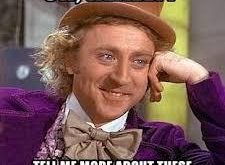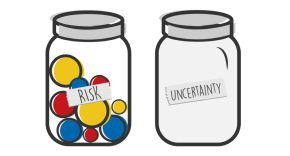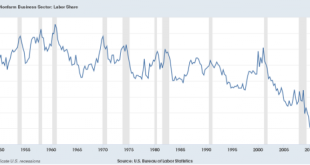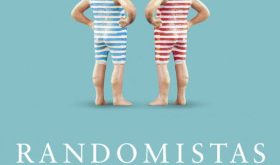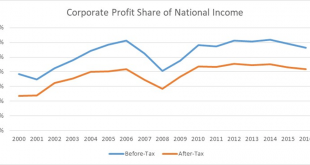from Asad Zaman Introduction — I wrote this essay a while ago, and I am adding this preface here to explain more about WHY I wrote it: Preface: A central problem of our age is the turning of “means” into “ends”. It is obvious that money, by itself, is not a source of pleasure – it is a means to this end. Similarly, freedom is useful only if it is freedom to allow us to do something we want to do. Nobody would want the freedom to sell himself into slavery — which is effectively the only...
Read More »What are axiomatizations good for?
from Lars Syll Axiomatic decision theory was pioneered in the early 20th century by Ramsey (1926) and de Finetti (1931,1937), and achieved remarkable success in shaping economic theory … A remarkable amount of economic research is now centered around axiomatic models of decision … What have these axiomatizations done for us lately? What have we gained from them? Are they leading to advances in economic analysis, or are they perhaps attracting some of the best minds in the field to deal...
Read More »What did I learn from my students? Market boundaries are shifting.
A lot of my students do internships or write theses based upon problems of companies or NGO’s. Many teachers want them to play the research game. I prefer them to design something for the company or organisation as I really want them to learn that they don’t have to learn what their teacher wants them to learn…. or wait…. Anyway: what did I learn? Some of the companies involved were: Agradi (Den Bosch). Cavallo (Bad Oeynhausen), Anicura (Amstelveen, John Maynard Keynes road…), PAVO...
Read More »The core problem with ‘New Keynesian’ macroeconomics
from Lars Syll Whereas the Great Depression of the 1930s produced Keynesian economics, and the stagflation of the 1970s produced Milton Friedman’s monetarism, the Great Recession has produced no similar intellectual shift. This is deeply depressing to young students of economics, who hoped for a suitably challenging response from the profession. Why has there been none? Krugman’s answer is typically ingenious: the old macroeconomics was, as the saying goes, “good enough for government...
Read More »Six lies on trade
from Dean Baker After 500 days of Donald Trump’s presidency, it is clear that any relationship between his statements and the truth are purely coincidental. He even boasts about his lack of interest in the truth, touting the fact that he had no idea what our trade deficit was with Canada when he confronted Canadian Prime Minister Justin Trudeau over our “$100 billion trade deficit.” (The actual figure is around $20 billion.) But Donald Trump’s contempt for the truth should not cause the...
Read More »I ran out of words to describe how bad the recovery numbers are
from David Ruccio Back in June, Neil Irwin wrote that he couldn’t find enough synonyms for “good” in an online thesaurus to describe the jobs numbers adequately. I have the opposite problem. I’ve tried every word I could come up with—including “lopsided,” “highly skewed,” and “grotesquely unequal“—to describe how “bad” this recovery has been, especially for workers. Maybe readers can come up with their own adjectives to illustrate the plight of Americans workers since the Second Great...
Read More »The randomistas revolution
from Lars Syll In his new history of experimental social science — Randomistas: How radical researchers are changing our world — Andrew Leigh gives an introduction to the RCT (randomized controlled trial) method for conducting experiments in medicine, psychology, development economics, and policy evaluation. Although it mentions there are critiques that can be waged against it, the author does not let that shadow his overwhelmingly enthusiastic view on RCT. Among mainstream economists,...
Read More »Intellectual property and China: No One is back
from Dean Baker I sometimes go under the professional name of “No One” as in “no one saw the financial crisis coming.” I apparently need to use this identification again when it comes to trade war with China. On Morning Edition today, Jeff Greene interviewed Jonah Goldberg, senior editor at National Review. Mr. Goldberg told Greene how conservatives are free traders so they generally are opposed to Trump’s tariffs. He then suggested that a way out for Trump would be to focus on China’s...
Read More »Econometrics cannot establish the truth value of a fact. Never has. Never will.
from Lars Syll There seems to be a pervasive human aversion to uncertainty, and one way to reduce feelings of uncertainty is to invest faith in deduction as a sufficient guide to truth. Unfortunately, such faith is as logically unjustified as any religious creed, since a deduction produces certainty about the real world only when its assumptions about the real world are certain … Assumption uncertainty reduces the status of deductions and statistical computations to exercises in...
Read More »Businesses can’t find qualified CEOs, don’t know how to raise wages
from Dean Baker That’s the implication of this CNBC piece that claims that hiring is down because businesses can’t find qualified workers. If this is really the problem, then the solution, as everyone learns in intro economics, is to raise wages. For some reason, CEOs apparently can’t seem to figure this one out, since wage growth remains very modest in spite of this alleged shortage of qualified workers. Businesses should be well-positioned to absorb higher wages since their profits have...
Read More » Real-World Economics Review
Real-World Economics Review

